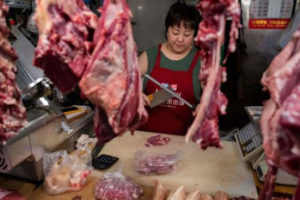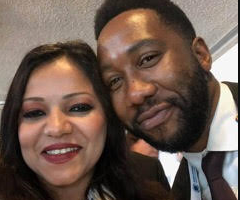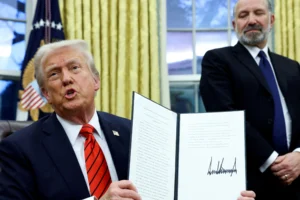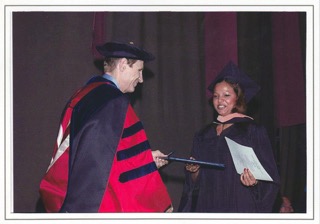In the year since President Donald Trump officially ended family separations at the southern border, immigration authorities have removed more than 900 migrant children from their families, sometimes for reasons as minor as a parent not changing a baby’s diaper or having a traffic citation for driving without a license, according to new documents filed Tuesday in federal court.
Family breakups have been imposed with even greater frequency in recent months under the Trump administration’s most widely debated immigration policy, ostensibly to protect the welfare of the children, but in many cases because of relatively minor criminal offenses in a parent’s past, such as shoplifting or public intoxication, according to tallies the Justice Department provided to the American Civil Liberties Union, which is challenging the separations.
This month, the acting Homeland Security secretary, Kevin McAleenan, said in testimony before the House Oversight and Reform Committee that separations were “rare” and made only “in the interest of the child.”
“This is carefully governed, it’s overseen by a supervisor when those decisions are made,” McAleenan said, noting that fewer than 1,000 separations of children from their parents had occurred out of about 450,000 members of families encountered at the border since October 2018.
In most cases, government officials have said, border officers who make a decision to remove a child from an accompanying adult do so because there are questions about the child’s welfare, or doubts that the adult is genuinely the child’s parent. In some cases, they said, children are separated even though they are travelling with someone who clearly appears to be an aunt, uncle or sibling. Some children have appeared at the border accompanied by adults who later were determined to be using the child to try to gain entrance to the United States, officials have said.
The new numbers were filed with Judge Dana M. Sabraw of the US District Court in San Diego as part of the court’s continuing supervision of the family separation issue. In its motion Tuesday, the ACLU asked the judge to clarify a set of standards for such separations that would ensure that children are taken from their parents only when there is evidence that the parent is a genuine danger to the child, or is unfit to provide care.
“The administration is still doing family separation under the guise that they are protecting children from their own parents, even though the criminal history they are citing is either wrong or shockingly minor,” said Lee Gelernt, of the ACLU’s Immigrants’ Rights Project. “This is just circumventing the court’s order.”
Children who were separated from their families over the last year spent an average 68 days in shelters, according to the motion filed with the court, though four children have been away from their families for more than 300 days.
More than half of those separated — a total of 481 — were under age 10 at the time of separation, and 185 children were 5 or younger.
Family separations began in large numbers in the spring of 2018 under the Trump administration’s “zero tolerance” border enforcement policy, which called for nearly all adults who entered the country illegally to face criminal prosecution. Any children accompanying them were placed in shelters or foster care. Migrant families often ended up hundreds or thousands of miles apart for weeks or longer.
A limited number of family separations also occurred under the Obama administration, though only in instances when it was clear that the parent endangered the child, former Obama administration officials have said.
The separations were central to the Trump administration’s early efforts to discourage migrant families from trying to enter the United States after traveling over land through Mexico. Arrivals of families decreased while the policy was in effect.
But images of weeping mothers and children at the border provoked an international outcry and outrage across party lines, with all four living former first ladies and Melania Trump expressing horror at the policy. Trump issued an executive order on June 20 effectively rescinding the policy by calling for any parents who are prosecuted for illegally crossing the border to be detained with their children.
Sabraw the same month issued an order to reunify all separated families, and cases of separations dropped precipitously. But they have recently been climbing rapidly, Gelernt said. By March, about 200 migrant children had been taken from parents and other relatives and placed in institutional care since the policy was officially rescinded the previous June. The total number reported to the court Tuesday — 911 separations between June 2018 and June 2019 — suggests that the practice has expanded recently, perhaps in response to a large number of migrant families entering the country in the spring.
In the first nine months of the current fiscal year, 427,881 members of families were encountered at the border, compared with 161,113 during the entire 2018 fiscal year, according to figures compiled by Customs and Border Protection.
The latest separations reported to the court, based on monthly tallies the Justice Department is required to submit to the parties in the litigation before Sabraw, are mainly based on crimes committed by the parent, according to the new documents. But ACLU lawyers argued in their motion that many of the violations are as minor as traffic tickets. In one case, a 6-year-old child was flown to a New York shelter when her mother was hospitalised in California after injuring her leg.
In testimony before Congress this month, the Border Patrol’s chief of law enforcement operations, Brian S Hastings, said the agency has established that its agents may elect to separate a child from a parent if there is a determination that the parent or legal guardian poses a danger to the child, is otherwise unfit to care for the child, has a criminal history or a communicable disease, or is transferred to a detention setting for prosecution for a crime other than improper entry.
They may also separate a child when border officials cannot confirm that the adult is actually the child’s parent or legal guardian, or if the child’s safety is at risk, Hastings said.
But this leaves broad discretion for Border Patrol agents, something that lawyers challenging the practice in court hope to end with court-imposed standards.
“Right now, the government can separate based on any criminal history, regardless of the severity, and based on subjective criteria,” Gelernt said. “We want them only separating in specific circumstances.”
In the field, Border Patrol agents say they are mindful of the best interests of children, and of their obligation to keep them safe.
“We are not really separating anybody unless there is criminal activity already on the record,” said Jorge Rivera-Navarro, a spokesman for the Border Patrol in El Centro, California, a sector that covers 70 miles in the southeastern corner of the state near Arizona. In one recent case, he said, a member of the MS-13 gang was posing as the father of a little girl. The man was arrested and the girl was sent to a government shelter.
The new motion before the court did not lay out the full details of all 911 cases of separations, in part because the government provided only minimal details of criminal history for each case, the filing said. For many parents, the spreadsheet provided by the Justice Department did not state the nature of the criminal history at all. For many others, it did not specify whether the criminal history was a conviction or merely a charge.
“In most cases, the spreadsheet fails to indicate the age of the charge or conviction,” the court filing says. In over 75% of the cases, the spreadsheet does not even specify whether the crime was a felony or misdemeanour.”
In the 218-page filing, organisations that work with immigrants at the border and lawyers that represent them, working with the ACLU, documented a number of separations they considered questionable. The organisations included Catholic Charities, the National Immigration Justice Centre, the Michigan Immigrant Rights Center and Las Americas Immigrant Advocacy Centre.
In one case, a father who is identified in the court filing only by the initials ERR had sought medical attention for his daughter when she began to cough and became feverish in detention.
One day, while she was sleeping in her father’s arms, the baby wet her diaper and he did not change it because he had wanted her to keep sleeping. “A female guard took his daughter out of ERR’s arms, criticised him for not changing the diaper, and called him a bad father,” the filing says. “The guard then separated ERR and his infant. The government’s own documents show that ERR has no other criminal history.”
The government’s report to the ACLU lists dozens of parents separated from a child as a result of traffic violations, drunken driving offenses, drug possession, and fraud or forgery offenses, according to Gelernt.
A 2-year-old child was separated from his father based on “public intoxication arrests and a DUI.” An 8-month-old boy was removed from his father for a “fictitious or fraudulent statement or representation arrest.” One parent was separated from a child because of an assault that took place 20 years ago, a misdemeanour offense for which he had served three days in jail.
One parent was separated from his daughter because of “malicious destruction of property, value $5,” for which he had received a six-day jail sentence with six months of probation. The child was handed over to her mother after nearly four months in custody.
An 11-year-old girl was separated from her father because of a conviction for disorderly conduct and an illegal re-entry charge. One parent was separated because of a record of shoplifting and driving without a license, according to the government spreadsheet. Another parent was separated as a result of a 2009 conviction for “resisting or obstructing an officer,” for which he received “17 days time served,” according to the filing.
There were also allegations of gang membership that were unsubstantiated, the filing said. A father accused of being a gang member was separated for six months from his children, ages 9 and 11, the filing said, until his attorney submitted a background check that showed another person in El Salvador with a similar name and date of birth who had a criminal record.
c.2019 New York Times News Service






















